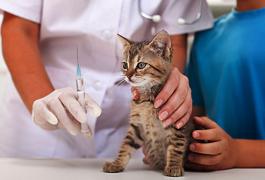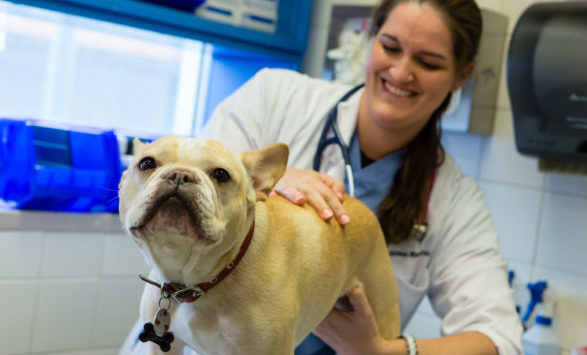Vaccinations for Cats

Vaccines are an easy way to prevent your cat from getting sick with serious, sometimes fatal, diseases. Groomers or boarding kennels may require vaccinations to prevent the spread of diseases in close quarters. Your veterinarian can discuss with you which vaccines your cat needs and how often to get them.
Core Vaccines:
- Feline leukemia virus (FeLV): This virus is one of the leading causes of death in cats. FeLV is spread from cat to cat through grooming, biting, or nursing. It can lead to a suppressed immune system, anemia, leukemia, and other issues.
- Herpesvirus and calicivirus: Highly contagious viruses that most often affect young kittens over the age of 6 weeks. They are spread by other infected cats or contact with contaminated environments where infected cats have been.
- Panleukopenia: Also called distemper, this highly contagious viral disease most commonly affects kittens. It can be spread through the air, contact with infected animals, or contaminated environments or objects.
- Rabies: A serious, fatal viral infection that affects a cat’s central nervous system. It’s usually transmitted through the bite of an infected animal but can also be spread when an infected animal’s saliva comes in contact with broken skin through licking, drooling, etc. Rabies vaccinations are required in most states.
Non-core vaccines
Non-core vaccines are given depending on the cat’s lifestyle; these include vaccines for Bordetella, Chlamydophila felis, and feline immunodeficiency virus (FIV). Your veterinarian can determine what vaccines are best for your pet.
Make an Appointment































